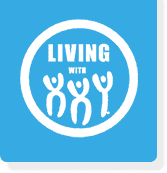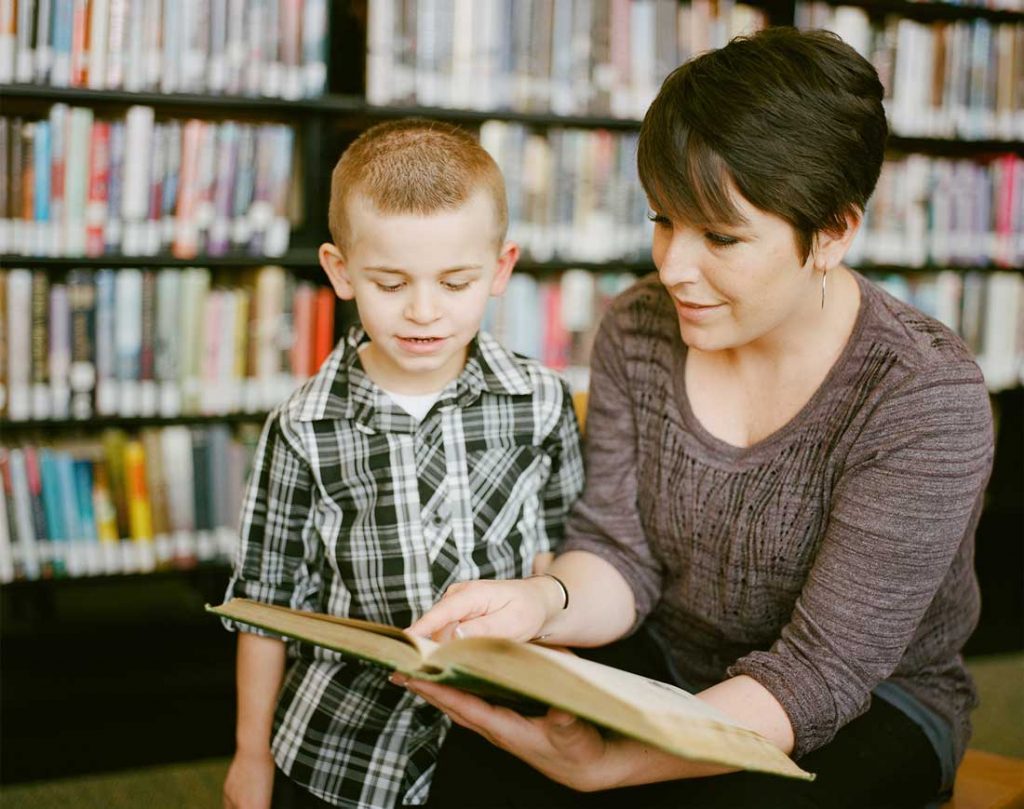Mom Vs. Teacher
A few details from a “Teacher that is a Mom” regarding my son’s academics and how it relates to Klinefelter Syndrome Diagnosis by: GLSS
Note: I have written more about my Klinefelter Syndrome Story in a different post. This post is more about how my teaching background helped with the academic struggles of the syndrome, and not as many details of the emotional journey.
My Klinefelter Syndrome son was diagnosed one and a half years ago at age 17. Although new to the journey, my son’s life has already drastically changed since he began T (testosterone) injections. When I reflect on the medical and scientific piece of my son’s diagnosis, I can’t help but think of the numerous questions answered for my son, specifically academically. I wish that I had known his diagnosis at birth, so that T injections could have started during his first year of life. I think about the difference T injections made in such a short time, and I’m confident of the positive results it would have made beginning early.
All in all, Johnny was a regular kid. He loved anytime he could be outdoors, roamed all the creeks in our neighborhood, and even learned to ride a bike without training wheels before his third birthday. Johnny has played organized sports since kindergarten. He played travel baseball in second, third, and fourth grades. He began tackle football in third grade, and picked up lacrosse in fifth grade. He was never number one on his team, but he always competed at a level that earned him a “first string position”. He was athletic, and a team player.
Johnny came home from the hospital sleeping seven hours a night; yes, he was a dream baby! He met all milestones on time or early, with the exception of one. Johnny spoke his first words on time, and used language appropriately. However, he was hard to understand, substituting and omitting sounds in some words. I knew that speech would impact him academically, so I pursued therapy prior to kindergarten. After he exited from speech therapy, there was still “something” with language I couldn’t put my finger on.
Being an elementary school teacher opened all kinds of doors from speech therapists to seasoned educators to testing experts. I drained every ounce of their expert opinions, and all of them agreed that Johnny did not have a language issue. As I said, I couldn’t put my finger on what I was seeing, and the experts said there was not a problem. It was hard to explain, because when I attempted to explain, it sounded as if Johnny was a poor achiever or developmentally delayed, which I knew he was not. The year Johnny spent in speech therapy fixed the sound omission and sound substitution in pronounced words; but the mother with teacher eyes and ears caught things on an everyday basis that others did not see. Some examples of what I observed was:
- In telling a story of what Santa brought for Christmas to his grandparents, he would take forever to tell it. I guess you could say he got off topic, gave details that weren’t important, and lost his place in the story. The listener would often be thinking “come on, get on with the story.”
- We played a word game where I would ask him to repeat a series of numbers or words, and he would repeat them perfectly, but at a rate slower than you would expect. He would have to think about it.
- When studying for a test I would ask him a question, and he would take a little longer to spit it out: even when he confidently knew the answer.
I know what you are thinking; any child could do that. You are correct, any child could do that. It is hard to explain; it was a mother’s instinct connected to the experienced teacher within me that identified something more than experts were seeing.
Johnny headed to kindergarten, so excited that he got to ride to school with his sister and me each day to school. The excitement slowly but surely came to a halt, because as we all know sleeping in, riding your bike, and no homework is much better than school. Johnny did well in an academic kindergarten, leaving knowing sight words and with a strong base of phonics. First grade was good, but his teacher also said there was something she couldn’t quite put her finger on. He held on in second grade, but did begin having trouble with orally reading at the required words per minute.
I took Johnny to a private psychologist that diagnosed him with ADHD, despite the fact there wasn’t a great impact on his academic performance. The psychologist noted that my son wasn’t overactive, but he was distracted and unfocused. The academic impact came to the surface in third grade. Johnny’s third grade teacher was a teacher I had known and loved for years; she was very experienced and knowledgeable. She noted some things about Johnny that year that I agreed with, and some that I did not agree with. Third grade is a year where students are no longer learning to read, but reading to learn. It’s also a year where many boys tend to struggle, because most times there is little activity, and more of a seated learning style.
Johnny began daily medication for ADHD (Concerta), but I felt the diagnosis wasn’t that “thing” that I kept trying to put my finger on. Something was off, but I went with it anyway. If medication helped, it wasn’t significant in my opinion. At the beginning of fourth grade, the school psychologist tested Johnny, and found a mild learning disability. The disability was in the area of processing. The processing issue was revealed with a rapid naming test. This test times students where they repeat a sequence of items they see on paper. For example, a series of colored dots would be on a page, and the student repeats the colors in order while the test administrator uses a stopwatch. Johnny repeated it slightly slower than what is considered average.
Now I could finally put my finger on what I had been seeing. The brain processes information that comes in (others speak to you, you are reading silently, or viewing something), and the brain processes information that goes out (reading orally, telling a story about what happened at recess, or even writing a story). When Johnny was telling his grandparents what Santa brought for Christmas, he knew the story, he knew what he received, he knew what he wanted to say, but the process of it going from brain to mouth had some interference which was making it slower. The same thing was happening when I played the aforementioned word game, asking him to repeat a series of words back to me. It was seen again in reading, when he read at a slower word per minute than the grade level standard. He knew the words, he knew the phonics, yet he was reading at a slower rate. It wasn’t so slow that he was significantly behind academically, but slow enough that it caused issues of not meeting certain grade-level benchmarks. The school didn’t dive into this very deeply; for them, it was a learning disability. That meant he had extra time if needed on projects and tests. It also meant teachers were required to use scaffolding techniques if needed for success. Which in reality, teachers should do both of those things when needed to help the success of all students.
Beginning in middle school, Johnny needed a little more help from teachers, mostly with breaking down assignments in order for him to finish work. Johnny gave up quickly because what took others ten minutes to read and answer three questions, took him longer. These things coupled with being a middle school boy that was distracted and unfocused made for a bit more difficulty in middle school. Johnny also seemed a little immature, and sometimes silly. As other boys were developing pubertally, Johnny was not. He was taller than most, but he had very little leg hair, armpit hair, no voice changes, and did not have official body odor. In addition, the belly fat that was disappearing from his peers and moving to their shoulders, was not happening for my son. Johnny was self-conscious about his body, and his self-confidence was declining. The pediatrician was consulted, and assured me all boys develop at different rates in relation to puberty. I heard the answer, noted it in the back of my mind, but continued to ask about it at each visit, because I was still concerned.
As a freshman, Johnny attended our local high school. He played sports all the way through the feeder pattern, and was excited to be there. During that year, my husband and I decided to make a change in our son’s education. We weren’t sure what the change would be, but felt we were being led in another direction. Johnny had not been in trouble, nor was he using drugs and alcohol. His GPA was a 3.5, but I knew I was giving too much academic help (I guess you could say 3.5 was “our” GPA). Johnny played football and lacrosse at our local high school, but we could see others were beginning to outperform him with strength, particularly in the weight room. I say it best when I say “nothing was really wrong, but there wasn’t a whole lot right either.” After tons of prayer, we decided our son would attend a military boarding academy, nine hours away. I assure you, this decision was not made lightly. It was the hardest thing this Mom ever did, but the best thing this Mom ever did! This school wasn’t a “reform” school; it was a well-known, prestigious school where academics, athletics, responsibility, and faith were held in high regard.
After a football injury at Johnny’s boarding academy, he was seen by the school’s infirmary doctor. The nurse called me post-visit telling me of his clearance to return to play, and with a suggestion that I consult Johnny’s pediatrician regarding pubertal development. After a blood test and a chromosomal analysis, Johnny was diagnosed with Klinefelter Syndrome.
We are one and a half years post diagnosis, and Johnny is in a much better place. He is on weekly T injections, an estrogen blocker, and cholesterol medication. It took about ten months to find the right endocrinologist, and correct dosage for T injections. Johnny is a more confident and mature young man with more established friendships and relationships, after beginning T injections. There seemed to be a fog lifted from his brain. His desire to be independent and responsible grew by leaps and bounds. This didn’t fix everything; but it did change my son’s life. Not having biological children is still a concern for Johnny, but he is mindful of adoption, sperm donors, and sperm retrieval surgeries. He doesn’t mind the needle, but he’s not fond of taking daily medication. His shoulders have broadened, but he hasn’t seen a lot of success in growing muscle or losing belly fat. I believe there is more research to do and more to learn about the quality of life as it relates to Klinefelter Syndrome, and as a mother I continue to fight for more knowledge.
The academic impact of a learning disability that is often seen with Klinefelter Syndrome didn’t keep Johnny from achieving academic and life success. He attended a prestigious military academy high school, miles away from family. Johnny finished that high school with a 3.1 GPA, where he was recruited to play college football. Rather than college and playing football, he has decided to attend a trade school and go straight to work at a commercial construction company, where he already has a job offer.
So you may ask what do you know now, that you wish you had known then? In hindsight, I wish I had pursued language therapy regardless of test results. Through this, I learned to never ignore my instinct, as I knew my son’s pubertal development wasn’t the same as others his age. I am confident that my expertise as a teacher benefitted my son and his academic progress. I also believe my husband’s love for the outdoors and his active lifestyle benefitted my son athletically and physically. So to all the parents out there that have young babies and toddlers, I tell you this:
- Read to your child. Read with your child.
- Sing with your child. Play learning tunes in the car and at home.
- Recite nursery rhymes. Work at memorizing them. I have read that children that can recite eight nursery rhymes at age four are the best readers and spellers in their class at age eight.
- Count when you go for a walk. Count to ten. Count to 100, then count by fives, tens, and twos.
- Find letters on the cereal box during breakfast.
- Play catch with your child.
- Walk and balance at the playground.
- Skip rope and count while you skip rope.
- Bounce a basketball while you say the days of the week.
- Collect rocks at the creek.
I’ve always lived by the phrase “where there is a will, there is a way”. I am determined to learn more. I will be the one to say, you can get over that hump. I will continue to find ways to help my son transition into adulthood where he thrives with a quality lifestyle. You can do the same; read and research, pray and love, action: not reaction, and follow your instincts!



